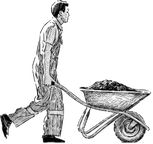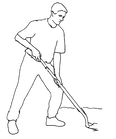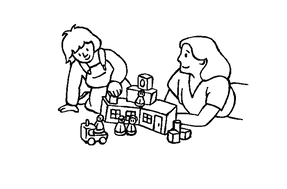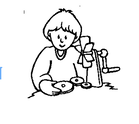|
Sensory Processing Disorder In children and adults with sensory processing issues the brain has difficulty making sense of the sensory information it is receiving from the environment, deciding what to focus on or what to filter out, and how to respond appropriately to the information. This response may be a motor action, such as adjusting your posture so you don’t fall down (clumsiness), or it may be a cognitive response, such as being unable to concentrate on your parent’s or teacher’s voice even when there is little noise in the room. People with sensory processing issues expend a lot of extra energy and thought making sense of their sensory world and trying to think of appropriate responses. Therefore they struggle with poor attention, become frustrated easily, can be moody, anxious and sometimes depressed. Sensory Processing Disorder (SPD) is an umbrella term that encompasses several different types of disorders resulting from poor integration of the senses. Typical symptoms of Sensory Processing Disorder include the following: 
These are just some of the more common symptoms of Sensory Processing Disorder. If you feel like you or your child may have some of these symptoms which are interfering with your / their quality of life, our occupational therapists can help you. They will identify and give you strategies to manage yours or your child’s sensory issues. You don’t have to struggle alone, just call us at Therapy Professionals Ltd  Phone: 03 377 5280 Email: [email protected]. Keep fit with gardening  Gardening helps keep us fit. It works and stretches our muscles. However, it can be hard on other parts of the body, especially our back and knees. Don’t overdo it!! Here is some advice from our friendly physiotherapists on how to keep fit with gardening and avoid the physical drawbacks from the activity. Their general advice is to:
 Advice to save your back and knees:
If you want more advice on gardening safely as you age, our friendly physios and occupational therapists can help, contact us as follows:  Therapy for Children and Younger Adults with Special Needs |
AuthorShonagh O'Hagan Archives
July 2024
|



 RSS Feed
RSS Feed